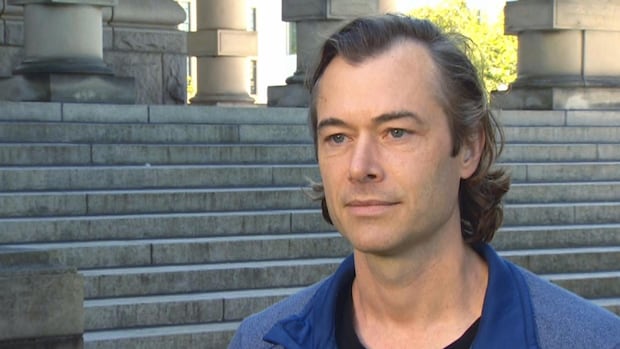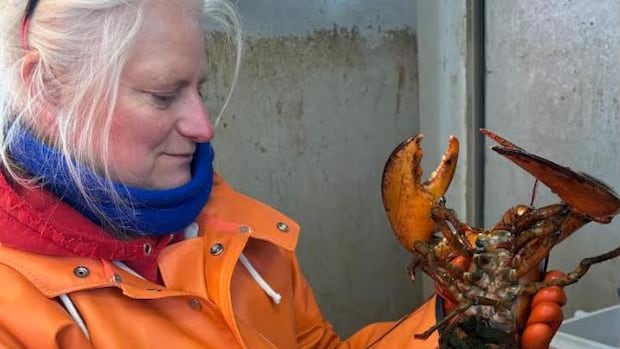Parliament will return on Monday after more than six months and will feel a little different than usual thanks to some unusual circumstances.
Each parliamentary session typically opens with some routine proceedings, which include the election of a Speaker of the House of Commons and a throne speech.
But added political attention on the Speaker position and the arrival of King Charles on Monday will add some twists and flair to the proceedings.
Heightened attention on Speaker election
The Constitution states that electing a Speaker should be the first order of business when Parliament returns after an election. Technically, the House cannot sit until a Speaker is chosen.
The Speaker is an MP chosen by other MPs to preside over the business of the House of Commons, act as an impartial arbiter of House proceedings and maintain order during debates. A Speaker has the authority to demand that MPs apologize if they use unparliamentary language — and can even order an MP removed from the chamber.
The Speaker is elected by a secret ranked-ballot, meaning MPs list the candidates in order of preference. If nobody wins on the first ballot, the last-place candidate is dropped and their votes are redistributed until someone claims a majority.
The election is overseen by the “Dean of the House” — the MP with the longest unbroken sitting record who isn’t a minister or party leader. Bloc Québécois MP Louis Plamondon, who was first elected in 1984, will be overseeing his seventh Speaker election.
While the Speaker is elected as a member of a party, the role is considered non-partisan — the Speaker does not sit in any party caucus.
Typically, the Speaker position doesn’t garner much attention, and the MP chosen for the role generally remains in the chair until the House is dissolved.
But the Speaker’s role has become more politicized during the last parliamentary session.
Former Speaker Anthony Rota resigned from the role in September 2023 after he invited a Ukrainian veteran who fought with a Nazi unit in the Second World War to sit in the House of Commons during Ukrainian President Volodymyr Zelenskyy’s address to Parliament.
Rota’s resignation prompted a rare mid-session Speaker election, which Liberal MP Greg Fergus won.
Fergus remained as Speaker until Parliament was dissolved in March but faced calls from opposition parties to step down over actions they believed were overly partisan for his role.
The re-election of a Speaker when Parliament returns is never guaranteed — former Speaker Geoff Regan lost the role to Rota in 2019 despite having been re-elected as an MP. And other MPs, besides Fergus, have expressed interest in running for the job in Monday’s vote.
All MPs who are not a leader of a recognized party or a minister are automatically considered candidates for Speaker unless they notify the House clerk in writing.
At least three Liberal MPs have expressed interest in taking the Speaker’s chair: P.E.I. MP Sean Casey, who put his name forward to replace Rota in 2023; Ontario’s Rob Oliphant; Sherry Romanado and Francis Scarpaleggia from Quebec.
Opposition Speaker could make difference for Liberals on cusp of majority
The Liberals also might opt to back a Speaker from the Opposition given that they’re just three seats shy of a majority.
The Speaker doesn’t vote in the House unless there is a tie, in which case they traditionally vote with the government.
At least three MPs from other parties are planning to let their name stand for election.
Conservatives Chris d’Entremont and Tom Kmeic have sent letters to their fellow MPs pitching himself for the Speaker’s role. D’Entremont has served as Deputy Speaker since 2021.
Green Party Leader Elizabeth May is also putting herself forward for the Speaker role. She previously vied for the job in 2019 and 2023. While May is technically a leader of her party, the Greens are not officially recognized in the House because they only have one seat; a party must have at least 12 to gain official status. So May is still eligible to be a candidate.
The House will convene for the day after the election and return just before the throne speech on Tuesday.
Monarch will read throne speech for just 3rd time in history
Every parliamentary session is generally opened by a speech from the throne.
The speech is usually read by the governor general in the Senate. But because King Charles will read the speech this time — only the third time a monarch has done so since Confederation — there will be more flair to the proceedings.
The King and Queen will travel to the Senate in Canada’s state landau — the ceremonial horse-drawn carriage used for royal and viceregal transport in Ottawa — from outside the Bank of Canada on Wellington Street.
The carriage will be drawn by 28 horses of the RCMP musical ride, with 14 horses travelling in front of the carriage and the rest following behind.
At the Senate, the King will receive full military honours, including a 100-person guard of honour from the 3rd Battalion of the Royal Canadian Regiment, an inspection of the guard and the band, followed by a 21-gun salute.
Once the King arrives in the Senate, the Usher of the Black Rod will be sent to the House to summon MPs for the throne speech.
The Usher is the King’s messenger in Parliament and is also responsible for Senate security and other ceremonial and administrative duties. The job originated in England in 1348. Former RCMP superintendent J. Greg Peters has served in the role since 2013.
The knock at the door
Traditionally, when the Usher arrives at the doors of the House chamber, he knocks three times and informs MPs that the governor general “desires” their presence for the throne speech.
But because the King is presenting this throne speech, Peters will tell MPs that “the King commands this Honourable House to attend His Majesty immediately in the chamber of the honourable the Senate.”
At Issue this week: Prime Minister Mark Carney sets the stage for a throne speech with a mandate letter outlining tasks and priorities for his cabinet. Canada looks beyond the U.S. for allies. And, Liberal MPs will soon decide whether to give themselves the powers to order leadership reviews.
The Speaker will then present themselves to the King along with the MPs in attendance.
The throne speech is always read in the Senate due to the tradition that the monarch (or their representative) cannot enter the House of Commons — a tradition derived from the British Parliamentary system that dates back to 1642.
By the same token, MPs can attend the throne speech but cannot enter the Senate chamber past the brass bar at the entrance — a barrier meant to symbolize the independence of both houses of Parliament. The prime minister is the one exception to this rule and may enter the chamber for the speech.

More routine proceedings will return following the throne speech. Both the Senate and House will introduce “pro-forma” bills — a Latin term meaning “for the sake of form.”
Bill C-1, “An Act respecting the Administration of Oaths of Office,” will be given a first reading but won’t proceed any further and won’t be discussed again. A similar step will take place in the Senate with the introduction of Bill S-1. The introduction of these bills is a symbolic ritual meant to assert the independence of both houses from the Crown.
The House will then either begin debate on the throne speech or turn to administrative business, such as appointments to the Board of Internal Economy and the procedure and House affairs committee.








